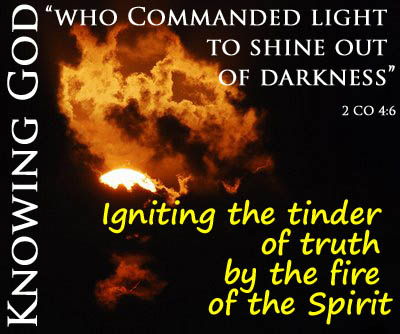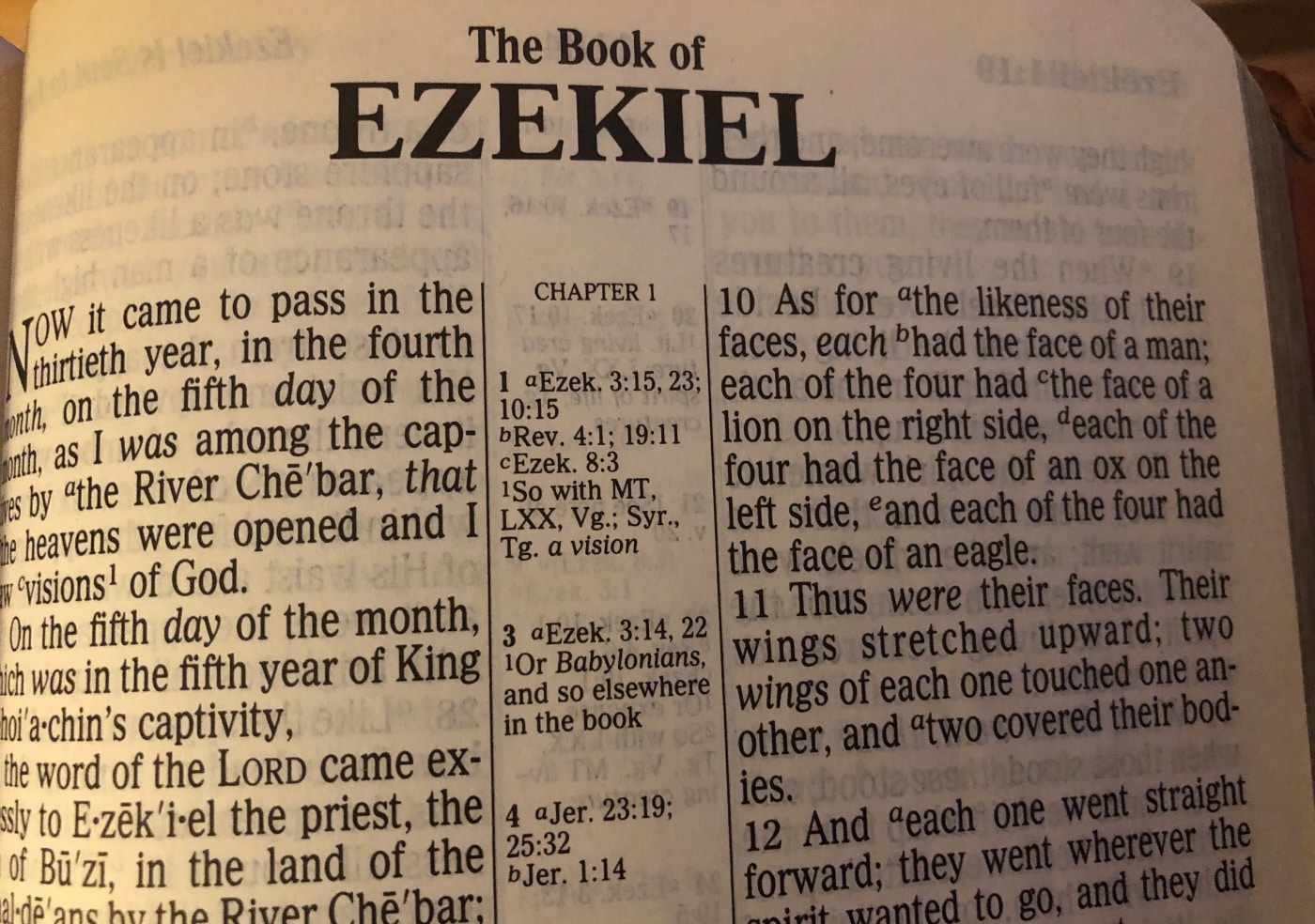
Knowing God—A Study in 2nd Corinthians
Moving Beyond Knowledge into Experience—
Igniting the Tinder of Truth by the Fire of the Spirit
Gene Cunningham - September 25, 2003
Ezekiel #23

Ezekiel 20 has five sections: God rejects the prayers of the elders (Eze 20:1-3); historical rebellion in Egypt (Eze 20:4-9); Idolatry in the wilderness (Eze 20:10-26); idolatry in Cana (Eze 20:27-31); God's promises and faithfulness (Eze 20:32-44). Jesus Christ laments (Eze 19:19, Mat 23:37-39). In 591 BC God rejects the prayers of the elders. It was customary to seek the prophet (Eze 20:1-3, Exo 18:15, 1Sa 9:6-9, 1Ki 22:8-9, Jer 21:1-4). God says He won't answer when we have idols in our heart (Eze 14:3, Eze 14:7, Eze 14:13-14). God won't hear prayer without faith (Rom 14:23, Jam 1:7). God won't hear prayer if it is contrary to His will (1Jo 5:14-15, Jam 4:1-4). God won't hear prayer if sin is in our life (Psa 66:18, Joh 9:31). Confession and repentance is necessary before prayer (1Jo 1:9, 1Co 11:31). God repeats "I will not hear your prayer", "I raised My hand in an oath", "I acted for My Namesake", "If a man lives by [My Law] he'll live", "that they may know that I am the Lord". How can we stand before a holy God? God resolves the problem by a mediator — (1Ti 2:5, 1Jo 2:2). God imputes righteousness from the mediator, uniting us by faith. Pharaoh is an example (Rom 9:17). God displayed mercy and grace with Rahab; she chose to believe in the God of heaven. God will be glorified by Israel (Eze 20:33-41); it'll take much judgment to eventually show His grace and mercy. Before God can pour out blessing we must be humble; Examples include: Moses (Exo 6:1-30, Psa 90:8); Job (Job 2:3, Job 42:5-6); Daniel (Dan 9:1-19); Paul (1Co 15:9, Eph 3:8, 1Ti 1:15). Their opinions of themselves were less as they grew in faith. How can we be holy? God gave the law, but the dilemma is that it can only condemn (Eze 20:10-12). Regeneration by faith is the answer. Grace = God's Riches At Christ's Expense. It is God's offers (Eph 2:8-9, Col 2:6) On our own we cannot be holy; trying to keep the law is illustration (Gal 3:1-13)
Scripture References: Daniel 9:1-19, James 1:7, Ezekiel 20:4-9, John 2:2, Ezekiel 20:1-3, Job 42:5-6, Romans 14:23, Galatians 3:1-13, Ezekiel 20:1-3, John 1:9, Matthew 23:37-39, Job 2:3, Ezekiel 14:13-14, Colossians 2:6, John 9:31, Ezekiel 19:19, Psalms 90:8, Ezekiel 14:7, Ephesians 2:8-9, Psalms 66:18, Ezekiel 20:32-44, Exodus 6:1-30, Ezekiel 14:3, Ezekiel 20:10-12, James 4:1-4, Ezekiel 20:27-31, Ezekiel 20:33-41, Jeremiah 21:1-4, Ephesians 3:8, John 5:14-15, Ezekiel 20:10-26, Romans 9:17, Exodus 18:15
From Series: "Ezekiel - 2002"
Ezekiel's vision of God's glory effected his life.

